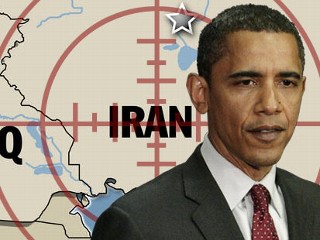By: Greg Johnson
 As Congress moves ever closer to a vote on President Barack Obama’s “historic” nuclear deal with Iran and as Iran’s supreme leader still calls America the “Great Satan” critics of the pact worry a richer, nuclear Iran will destabilize the Middle East.
As Congress moves ever closer to a vote on President Barack Obama’s “historic” nuclear deal with Iran and as Iran’s supreme leader still calls America the “Great Satan” critics of the pact worry a richer, nuclear Iran will destabilize the Middle East.
Forget the Middle East. Forget the future.
The Iranian nuclear deal has already destabilized the world.
The civil war in Syria has killed more than 200,000, produced 4 million refugees, internally displaced another 8 million and left one little boy in a red shirt dead on a beach. He died at sea, his father unable to save him from the war or the water. The world was aghast. For a moment.
But the Syrian conflict is no new thing. In April 2013, Sen. Bob Corker, R-Tenn., who had just visited refugee camps in Turkey and Jordan, wrote in a column, “As Syria slips further into chaos, America is acting hesitantly at a pivotal moment for our national interests and those of our allies in the region.”
Obama hesitated to arm moderate rebels. After calling the use of chemical weapons by Syrian President Bashar Assad a “red line” that if crossed would prompt U.S. involvement, Obama hesitated. In fact, he capitulated to Russian President Vladimir Putin after Assad gassed his people. Assad gasses his people still.
But Obama’s hesitancy was not limited to Syria.
When Russia invaded Ukraine in 2014, Obama did not send weapons as the Ukrainians requested. He sent meals-ready-to-eat. Obama had earlier canceled a planned defensive missile deployment to Eastern Europe as part of his ridiculous reset with Russia. The incoming chairman of the Joint Chiefs of Staff, Gen. John C. Dunford, told Congress in July that Russia is our greatest “existential threat” and supports sending heavy arms to Ukraine.
At the core of this incessant weakness is the Iran deal.
Assad in Syria is a client of Iran and Iran is a client of Putin. Had Obama hit Assad, he would have angered Iran and, thus, Putin. Had Obama armed Ukraine, he would have angered Putin and, thus, Iran. Intervention in either instance would have endangered Obama’s latest bid for historicity.
“In its single-minded pursuit of a nuclear agreement with Iran, the Obama administration adopted a Syria policy rich in rhetoric and empty of substantive action,” wrote Frederic Hof, Obama’s former ambassador for transition in Syria, in a post on the Foreign Policy website. “Getting a legacy-boosting nuclear deal with Iran was everything for the Obama administration. Nothing should be done in Syria that would offend Iran’s supreme leader, Ayatollah Ali Khamenei, or the Islamic Revolutionary Guard Corps’ support for Assad’s mass murder strategy.”
The Iranian negotiations, in effect, kept Assad in power, emboldened Putin and allow Khamenei to continue to agitate for a second Holocaust.
Now waves of immigrants wash ashore — some dead, some alive — in Europe, destabilizing tiny, poor countries like Macedonia, Hungary and Serbia. Migrants block train tracks between England and France. Germany plans for 800,000 immigrants.
With already tepid economic growth, European budgets will be further strained and native Europeans will have to pay for the mass migration through higher taxes, fewer services or both.
America will take in migrants, according to Obama. Where he will put them, how he will feed and fund them, he did not say. Americans, too, are going to pay very soon for Obama’s obsession with legacy.
But there are bigger lessons here for both right and left.
America matters. We did not act as Syria spun out of control. We kept hands off when Putin invaded Ukraine. Now hundreds of thousands are dead, millions displaced, Western Europe overrun and Eastern Europe quakes in the growing shadow from the Kremlin. We simply cannot isolate ourselves.
And we should never again elect a president whose quest for legacy disrupts world order and enables so much displacement, so much pain, so much death.
Knox news

Leave a Reply
You must be logged in to post a comment.